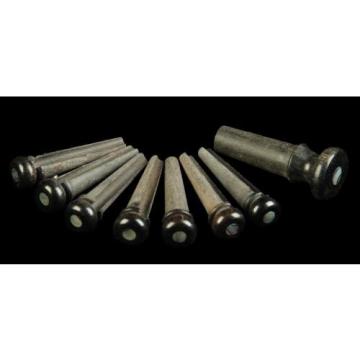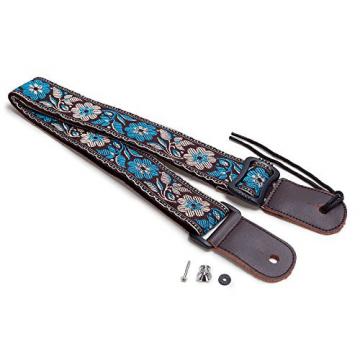Home> Company News> How to Determine the Value of Your Martin Guitar: Factors that Impact Resale Price
- AddressShan Dong Province,China
- Factory AddressShan Dong Province,China
- Phone(Working Time)86-13305315989
- Phone(Nonworking Time)86-13305315989
How to Determine the Value of Your Martin Guitar: Factors that Impact Resale Price
2023-05-08 11:03:42Martin guitars are known for their exceptional craftsmanship, superior tonal quality, and iconic designs. Owning a Martin guitar price is not only a source of pride for guitar enthusiasts but also a potential investment opportunity. Understanding the resale value of a Martin guitar is essential for anyone looking to sell or trade their guitar in the future. There are several factors that impact the price of a used Martin guitar, and being aware of these factors can help you get the best possible price for your instrument.
One of the most crucial factors that determine the value of a Martin guitar price is the brand's reputation and history. Martin guitars have been in production since 1833, and their legacy is a crucial aspect of their value. The company has a long and storied history, with many iconic musicians and guitarists using Martin guitars throughout the years. The company's reputation for quality, craftsmanship, and tonal excellence is a significant factor in determining the resale value of a Martin guitar.
Another critical factor in determining the value of a Martin guitar is the age and condition of the instrument. Generally, older guitars are more valuable than newer ones, but the condition of the guitar plays an essential role in its value. Guitars that have been well-maintained and cared for will have a higher value than those that have been neglected or damaged. Regular maintenance, such as cleaning, polishing, and string changes, can help preserve the condition of your guitar and maintain its value.

The rarity and collectibility of a Martin guitar can also impact its resale value. Some Martin guitar models are rarer than others, and these models can command a higher price in the market. Limited edition or special feature guitars can also have a higher value than standard models. The association of famous musicians with specific Martin guitar models can also impact their value, as collectors and fans often seek out guitars associated with their favorite musicians.
The materials and construction of a Martin guitar are also crucial factors that impact its resale value. The tonewoods used in the construction of a guitar can significantly impact its tonal characteristics and overall value. High-quality tonewoods, such as Sitka spruce and Indian rosewood, are commonly used in Martin guitars and can increase their value. The quality of construction and craftsmanship also plays a significant role in determining the value of a guitar. Custom features and modifications can also impact a guitar's value, as long as they are done professionally and do not negatively impact the guitar's overall quality.
Market demand and availability are also crucial factors in determining the resale value of a Martin guitar. The demand for specific models can fluctuate over time, and guitars that were once in high demand may lose their value if the market becomes oversaturated. The availability of specific models can also impact their value, as guitars that are rare or hard to find can command higher prices.
Comparing your Martin guitar to similar models in the market is also essential when determining its resale value. Researching the prices of similar Martin guitars can give you an idea of what your guitar may be worth. It is also essential to consider the role of documentation and history when selling a Martin guitar. Provenance and ownership history can impact a guitar's value, as well as original paperwork and documentation.
Overall, understanding the factors that impact the resale value of a Martin guitar is essential for anyone looking to sell or trade their instrument. The value of a Martin guitar can be impacted by several factors, including the brand's reputation and history, age and condition, rarity and collectibility, materials and construction, market demand and availability, comparison with similar models, and the role of documentation and history. Being aware of these factors can help you get the best possible price for your guitar and ensure that it finds a new home with a worthy owner.
Age and Condition of the Martin Guitar
When it comes to determining the value of a used Martin guitar, age and condition are two of the most important factors to consider. Generally speaking, vintage Martin guitars tend to be more valuable than newer models, as they are rarer and have a certain "vintage" appeal that many guitar enthusiasts find attractive.
That being said, not all vintage guitars are created equal, and condition plays a significant role in determining value. A well-maintained vintage Martin guitar in excellent condition will typically command a higher price than a poorly cared for or damaged vintage model.
When considering the condition of a used Martin guitar, there are a number of factors to take into account. First and foremost, the overall structural integrity of the guitar is key. Any cracks, warping, or other damage to the body of the guitar can significantly reduce its value, as it can compromise the instrument's sound and playability.
In addition to structural issues, cosmetic wear and tear can also impact the value of a used Martin guitar. Scratches, dents, and other marks on the body of the guitar can detract from its overall appearance and may reduce its appeal to potential buyers.
Finally, regular maintenance and care are also important factors to consider when evaluating the condition of a used Martin guitar. Guitars that have been well-maintained and regularly serviced are more likely to be in good condition and will often command a higher resale value as a result.
Overall, when assessing the age and condition of a used Martin guitar, it's important to consider both structural and cosmetic issues, as well as the guitar's maintenance history. By carefully evaluating these factors, you can get a better sense of a guitar's resale value and make an informed decision when buying or selling a used Martin guitar.

Rarity and Collectibility of Martin Guitars
One of the most significant factors that impact the resale value of a Martin guitar is its rarity and collectibility. Martin has been producing guitars for over 180 years, and over time, some models have become rare and highly sought-after by collectors and enthusiasts. The rarity of a guitar can be affected by several factors, including limited production runs, special editions, and unique features.
Limited production runs are guitars that were produced in a limited quantity, which makes them rare and collectible. For example, Martin might produce a limited run of a particular model for a specific year or event, and once those guitars are sold, they are no longer available for purchase. Limited-edition guitars can also come with unique features or finishes that are not available on the standard model. These unique features make them even more desirable to collectors.
Special editions are similar to limited production runs in that they are guitars produced in a limited quantity. However, special editions are produced to commemorate a particular event, such as a musician's anniversary, and are often signed by the artist or have special artwork on them. These types of guitars are highly collectible and can fetch a premium price.
The association of a particular model with a famous musician can also impact its rarity and collectibility. For example, the Martin D-18E acoustic guitar that Kurt Cobain played during Nirvana's MTV Unplugged performance in 1993 sold for $6 million at an auction in 2020, making it one of the most expensive guitars ever sold. The fact that Cobain played this particular guitar made it incredibly rare and collectible, and drove up its value significantly.
Overall, the rarity and collectibility of a Martin guitar are essential factors to consider when determining its resale value. If a particular model is rare or has unique features, it can significantly impact its value and make it a highly sought-after guitar among collectors and enthusiasts.
Materials and Construction of Martin Guitars
One of the most critical factors that affect the value of a Martin guitar is the quality of materials used in construction. Martin has a reputation for using only the finest quality woods, such as Sitka spruce, mahogany, rosewood, and ebony, in their guitars. These woods are known for their tonal qualities and durability, which is why they are so highly valued by guitar players and collectors alike.
The quality of construction is also a crucial factor in determining the value of a Martin guitar. Martin guitars are handmade using traditional techniques, and each guitar is inspected for quality before it leaves the factory. The attention to detail and craftsmanship that goes into each guitar is part of what makes them so highly regarded.
The impact of custom features and modifications
Custom features and modifications can add to the value of a Martin guitar, but they can also detract from it. In some cases, modifications can enhance the sound or playability of a guitar, making it more valuable to some buyers. However, in other cases, modifications can decrease the value of a guitar, particularly if they are not done professionally or are not in keeping with the original design of the guitar.
Collectors are generally more interested in original, unmodified guitars, as they represent a piece of history and a connection to the original design and craftsmanship of the instrument. However, some buyers may be willing to pay more for a modified guitar if the modifications enhance its value in their eyes.
In summary, the quality of materials and construction, as well as the impact of custom features and modifications, can have a significant impact on the resale value of a Martin guitar. Buyers and sellers should consider these factors carefully when buying or selling a Martin guitar to ensure they are getting the best possible value for their investment.
Market Demand and Availability
Market demand and availability are key factors that impact the resale value of a Martin guitar. Simply put, the more people want a particular model, the more valuable it becomes. When a guitar is in high demand, it is more likely to sell quickly and for a higher price.
Availability also plays a role in resale value. If a particular model is rare or difficult to find, it can drive up the price for collectors or enthusiasts who want to add it to their collection. Conversely, if a guitar model is widely available on the market, it can lower its resale value as it becomes more common and less rare.
Current trends in the guitar market can also impact the demand and availability of Martin guitars. For example, if a certain style or model becomes popular among musicians or collectors, it can increase the demand and value of that particular model.
However, it's important to note that market demand and availability are not the only factors that determine the resale value of a Martin guitar. Other factors, such as the condition, age, and rarity of the guitar, also play a significant role in determining its value. Therefore, it's important to consider all of these factors when assessing the resale value of a Martin guitar.
Comparison with Similar Martin Guitars
When it comes to pricing a Martin guitar for resale, it's important to consider the prices of similar models in the market. The resale value of a Martin guitar can be impacted by how it compares to other guitars in the same price range and with similar features.
One of the best ways to compare different Martin guitars is to research online and check out different marketplaces, guitar forums, and classified ads. You can also visit local guitar shops and attend guitar shows and events to get a sense of the market and the prices of different models.
It's also important to consider the saturation and competition in the market. If there are many guitars of the same model and condition available for sale, the resale value may be lower. On the other hand, if a particular model is rare or hard to find, the resale value may be higher.
In addition to comparing prices, you should also consider the condition and features of the guitar. A guitar in excellent condition with unique or custom features may be worth more than a similar model in average condition.
Ultimately, the goal is to price your Martin guitar competitively while still ensuring that you receive a fair value for your investment. By doing your research and comparing prices of similar models, you can set a realistic price for your guitar and attract potential buyers.
The Role of Documentation and History
When it comes to buying or selling a Martin guitar, the role of documentation and history cannot be understated. The documentation and history of a guitar can play a significant role in determining its value, especially in the eyes of collectors and enthusiasts.
One of the most important aspects of documentation is original paperwork, which can include receipts, warranty cards, and other paperwork that came with the guitar at the time of purchase. This documentation can help verify the authenticity of the guitar, as well as provide information about its age, condition, and other important details.
Ownership history is another important factor in determining the value of a Martin guitar. Knowing who owned the guitar and for how long can provide important context about its use and condition over time. In some cases, the ownership history of a guitar can also include notable or famous musicians, which can add significant value to the instrument.
Provenance, or the recorded history of a guitar's ownership, can also play a crucial role in determining its value. For example, if a guitar has been owned by a famous musician or played on a famous recording, this can greatly increase its value.
In addition to documentation and history, other factors such as the guitar's condition and age can also impact its value. A well-maintained guitar with a clean history and original documentation will typically be more valuable than a guitar with a questionable history or condition issues.
It's important to note that while documentation and history can certainly impact the value of a Martin guitar, they are not the only factors to consider. Buyers and sellers should also take into account factors such as market demand and availability, rarity and collectibility, and the materials and construction of the guitar. By taking all of these factors into consideration, buyers and sellers can make informed decisions about the value of a Martin guitar.
Pricing Your Martin Guitar for Resale
When it comes to selling your Martin guitar, setting a fair and realistic price is crucial. Whether you are selling to a music store, pawnshop, or private buyer, you want to ensure that you get a fair price for your guitar while also making it an attractive option for potential buyers. Here are some factors to consider when pricing your Martin guitar for resale:
-
Condition: The condition of your guitar is one of the most significant factors in determining its value. A well-maintained guitar with minimal wear and tear will typically command a higher price than one that has been heavily used and shows signs of damage or neglect. Be honest about the condition of your guitar when pricing it for resale, and make any necessary repairs or adjustments before putting it on the market.
-
Age: While age is not always an indicator of a guitar's value, it can play a significant role in determining its worth. Vintage or rare Martin guitars are often highly sought after by collectors and can command high prices, while newer models may be priced lower due to market saturation or competition from other sellers.
-
Rarity: The rarity of your Martin guitar can also impact its resale value. Limited edition or custom models are often more valuable than standard production models, and guitars with unique features or specifications can also command a premium price.
-
Market demand: The market demand for Martin guitars can fluctuate based on various factors, including current trends in the music industry, changes in consumer preferences, and economic conditions. Research the market demand for your specific guitar model to determine its potential resale value and adjust your pricing accordingly.
-
Comparable sales: Comparing your Martin guitar to similar models that have recently sold can help you determine a fair and competitive price. Look at completed sales on online marketplaces or check with local music stores or dealers to see what similar guitars are currently selling for.
-
Negotiation: Finally, be prepared to negotiate on the price of your guitar. Buyers may try to haggle for a lower price, so decide in advance what your bottom line is and be willing to compromise if necessary. However, don't undervalue your guitar or sell it for less than its worth just to make a quick sale.
By taking these factors into account, you can price your Martin guitar for resale in a way that is fair, competitive, and attractive to potential buyers. Remember to be honest about the condition and history of your guitar, and don't be afraid to seek advice from a trusted guitar expert or dealer. With the right pricing strategy, you can sell your Martin guitar for a fair price and ensure that it goes to a new owner who will appreciate it just as much as you have.
Conclusion: Understanding the Factors that Impact Martin Guitar Resale Price
In conclusion, understanding the factors that impact the resale value of a Martin guitar is crucial for anyone looking to sell their instrument. By having a clear understanding of what makes a guitar valuable, sellers can set a fair price and increase their chances of making a successful sale.
To recap, the factors that impact the resale value of a Martin guitar include age and condition, rarity and collectibility, materials and construction, market demand and availability, comparison with similar models, and documentation and history.
Age and condition are two key factors to consider, as the age of a guitar can impact its sound and playability, and the condition can greatly affect its resale value. Regular maintenance and care can help to ensure that a guitar retains its value over time.
Rarity and collectibility are also important factors to consider, as unique or rare models can fetch a higher price on the resale market. Limited editions and special features can also impact value, as can associations with famous musicians.
Materials and construction quality are important to consider, as the type of tonewood used and the craftsmanship of the instrument can impact its sound and value. Custom features and modifications can also impact value, but it's important to keep in mind that these changes may not be desirable to all buyers.
Market demand and availability can greatly impact the resale value of a Martin guitar. If a particular model is in high demand, it can drive up the price, while a saturated market can lead to lower prices. Current trends in the guitar market can also impact demand and value.
Comparison with similar Martin guitars is important, as it can help sellers set a realistic price for their instrument. By researching comparable models and their resale values, sellers can better understand the market and make an informed decision about pricing.
Finally, the role of documentation and history cannot be overstated. Original paperwork, provenance, and associations with famous or notable previous owners can greatly impact the resale value of a Martin guitar.

In addition to these factors, it's important for sellers to set a realistic price and be willing to negotiate. Emotional attachment and personal value may not necessarily translate into resale value, so it's important to consider market factors and buyer preferences when setting a price.
Overall, by understanding these factors and taking a strategic approach to pricing and selling their Martin guitar, sellers can increase their chances of a successful sale and ensure they receive a fair price for their instrument.
 Martin martin guitar strings Acoustic martin d45 Guitar martin guitars Bridge/End martin acoustic guitars Pin martin strings acoustic Set Ebony with Paua Pearl Inlays
Martin martin guitar strings Acoustic martin d45 Guitar martin guitars Bridge/End martin acoustic guitars Pin martin strings acoustic Set Ebony with Paua Pearl Inlays Kind martin guitar accessories Letters guitar martin martin acoustic guitars martin acoustic guitar martin
Kind martin guitar accessories Letters guitar martin martin acoustic guitars martin acoustic guitar martin CLOUDMUSIC martin guitar case Colorful acoustic guitar strings martin Hawaiian martin strings acoustic Style martin acoustic guitar strings Cotton martin guitar accessories Ukulele Strap Blue White Flower (Brown)
CLOUDMUSIC martin guitar case Colorful acoustic guitar strings martin Hawaiian martin strings acoustic Style martin acoustic guitar strings Cotton martin guitar accessories Ukulele Strap Blue White Flower (Brown) R martin guitars & guitar martin R martin guitar strings acoustic medium audio martin acoustic guitar strings CD martin guitar strings
R martin guitars & guitar martin R martin guitar strings acoustic medium audio martin acoustic guitar strings CD martin guitar strings pf1016-b martin guitar case Martin's martin strings acoustic Guitar martin d45 Lounge martin guitar accessories Beer acoustic guitar martin Bar Pub Room Neon Light Sign
pf1016-b martin guitar case Martin's martin strings acoustic Guitar martin d45 Lounge martin guitar accessories Beer acoustic guitar martin Bar Pub Room Neon Light Sign
